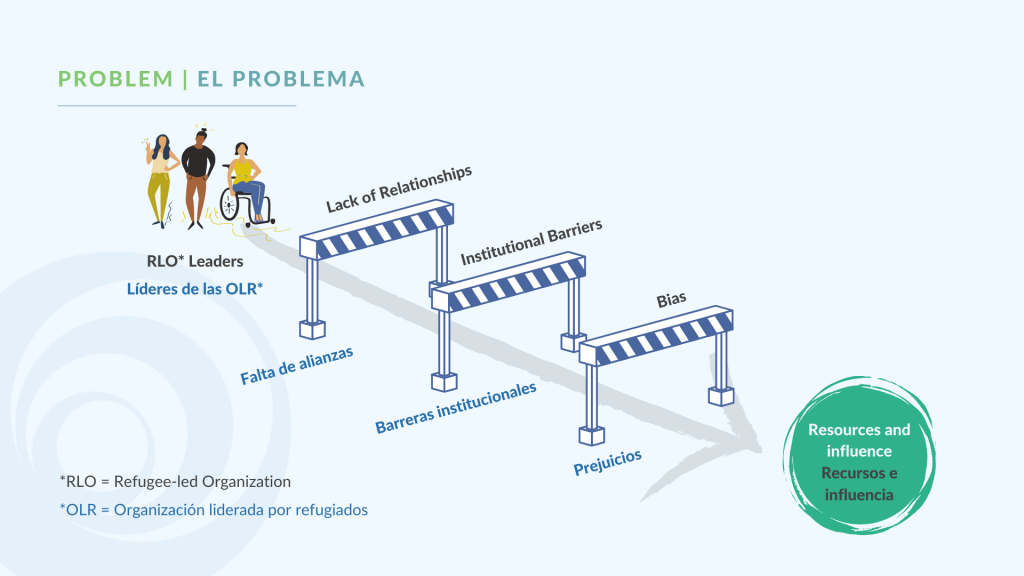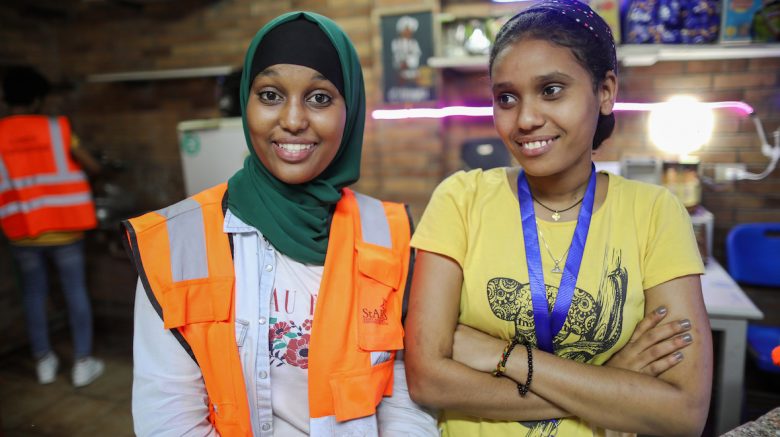Refugees contribute extensively to their new communities when given the opportunity ─ as has been repeatedly demonstrated. However, many of them are unable to do so due to obstacles they face in accessing legal work, free and safe movement, health care and education. The refugee response system tries to solve this situation by spending billions a year, most of which go to international NGOs that are literally and figuratively far from the experiences of displacement, instead of to refugee leaders themselves. It is time for us to directly support the essential work that refugee leaders do.
The Resourcing Refugee Leadership Initiative is driving this change. Our global coalition of six organizations ─ and recently the winner of the $10 million Larsen Lam ICONIQ Impact Award! ─ will transfer funding and control directly to refugee-led organizations, fostering a movement of people who have a shared experience of injustice and connecting them to more resources to create collective power.
We invite you to watch the below webinar, where you will learn more about the Initiative, our impact strategy, and ways to get involved.
Three Barriers that Refugee-led Organizations Face
In particular, we want to highlight why an Initiative like this is so critically needed right now.
Refugee-led organizations are driving solutions for their communities, but of the nearly 30 billion dollars flowing in the humanitarian system annually, it is estimated that refugee-led organizations are receiving less than 1%. Why is this happening? Three of the main barriers to funding faced by refugee-led organizations are: lack of relationships, institutional barriers, and bias.
Mohamed Ahmed, Director of Programs at Saint Andrew’s Refugee Services (StARS), provides more detail on each of these barriers in the webinar. We’ve transcribed his presentation below.

“Lack of Relationships
Most funding institutions lack the relationships and knowledge of refugee-led organizations. The majority have simply no idea about the quality of work refugee initiatives are doing or can do. They don’t know the enormous, untapped potential of these initiatives. On the other side, refugee-led initiatives lack the financial and social relationship necessary to build relationships with funders. They are simply far from the headquarters of most funding institutions.
Institutional Barriers
The majority of funders have policies and practices in place that make access to funding complex or impossible for refugee initiatives. For example, the highly complex nature of many funding applications prevents many local initiatives from even being eligible to apply. They need to produce perfect materials, perfect reports, visibility plans, branding and so on in order to even apply. For example, to even partner with UNHCR, you need to meet their requirements and sign their partnership guidelines–which is 243 pages long full of legal restrictions that systematically seclude refugee initiatives.
Bias
Refugees and refugee-initiatives are seen and treated (most of the time) as passive beneficiaries, rather than agents for change. The attitude of some iNGOs, and certainly UNHCR, is a major obstacle. For example, in 2017, two of our managerial staff [from StARS] were rejected from a UNHCR training for being refugees, despite the fact that it was a UNHCR-led training on community-based protection. When we asked why, we were told we needed to send senior staff. When we explained that those were actually senior staff, we were then told that their staff would not feel comfortable talking about refugees in front of our refugee staff. They stated that there was a conflict of interest between their ethinic and tribal realities and their professional obligations.”

